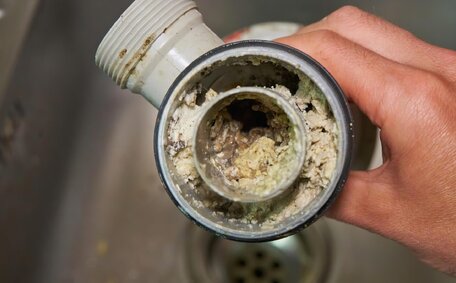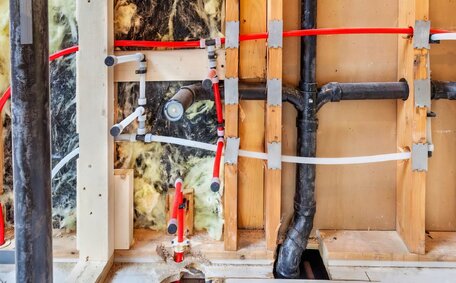Introduction to landlord gas safety responsibilities
Landlords have a legal obligation to keep gas appliances, pipework, and flues in rental properties in safe working order, prioritising the safety of tenants. Regular gas safety checks help maintain property safety and prevent hefty penalties.
Adhering to gas safety regulations and ensuring appliances are safe is essential. Faulty gas heaters and electrical appliances can emit carbon monoxide or trigger fires, hence mandatory safety checks by registered gas engineers are crucial in tenanted properties.
Conducting regular inspections and maintaining certifications protects your legal position and ensures compliance with rental regulations. Ignoring gas safety duties could lead to prosecution and fines, potentially exceeding $20,000.
Relevant gas safety legislation
As a landlord in Australia, understanding what gas safety entails means you must comply with electricity gas safety laws and regulations to protect your tenants. The key legislation includes maintaining a landlord gas safety record:
- The Gas Safety Act 2009 (NSW) - As a rental provider, this legislation mandates the maintenance of gas appliances, installations and pipework in good working order, necessitating annual safety checks by a credentialed gas technician.
- Under the Residential Tenancies Act 2010 (NSW) - Landlords must provide tenants with the current electrical installation safety check record within 28 days of completion, as mandated by residential tenancy obligations.
Neglecting these responsibilities endangers tenant safety and can attract fines of up to $2200 per violation. Ensuring regular upkeep and competent servicing of gas installations, supported by necessary documentation, is critical.
Conducting annual gas safety inspections
As a landlord, you are responsible for conducting annual gas safety inspections that cover all gas appliances and pipework on the property. This must be conducted by a gas safe registered engineer who is also knowledgeable about electrical safety.
The check should certify that the property meets the latest safety standards, providing a copy gas safety assurance, including all gas installations, heaters, cookers and pipework, as outlined in AS/NZS 5601.1. The engineer’s examination is comprehensive, documented in the gas safety check record, looking for risks such as gas leaks and faulty components—factors that necessitate provision of a fresh gas safety certificate, of which you must provide a copy to your tenant.
Landlords are required to provide tenants with a copy of the gas safety record within 28 days after the inspection. Retain these documents for at least five years to ensure the health and safety of your tenants, and be sure to keep them updated every 12 months. An updated certificate is a prerequisite to facilitate serving under section 21 notice, which is imperative for ending tenancies.
Annual electrical safety check of all your electricity and gas systems provides peace of mind that they are operating safely. Regular safety evaluations prevent component failures as appliances age, ensuring devices remain safe and operational. Diligent maintenance boosts efficiency and can prevent costly breakdowns.
Maintaining gas certification and records
As the landlord, you must retain copies of all your annual record gas safety check records, There no substitution for the momentous details these certificates capture, each vital for legal compliance:
- The gas engineer’s Gas Safe registration number
- Appliances checked
- Any defects found
- Repairs carried out
- Overall appliance safety assessment
Store digital or paper copies securely as a condition report and update them biennially to comply with health and safety inspector requests. If selling the property, these records should also be passed onto the new owner.
Whilst annual gas safety inspections are mandatory, certificates may remain valid for up to two years, subject to state regulations. The renewal of these documents is a critical landlord responsibility.
Impeccable record maintenance, including a compliance certificate, must also ensure unwavering adherence to gas safety responsibilities, as conscientious safety checks can. Failure comply with up to date documentation can lead to penalties for non-compliance.
Understanding gas appliances and installation
Appliance installation of gas electricity appliances like heaters, hot water systems and cookers rely on proper methods and ongoing maintenance to operate safely. When comes to maintenance, using unqualified technicians or DIY attempts instead of a professional gas fitter risks lethal consequences.
According to Standards Australia, roughly 50% of all gas-related fires originate from faulty installation work. Attempting jobs for any type gas appliance without licensed certification also breaches safety regulations.
Key gas installation hazards to be aware of include:
- Improper positioning of appliances or lack of adequate ventilation
- Defective pipe joints that cause significant leaks, unless repaired by certified professionals
- Improperly sealed vents allowing carbon monoxide to enter living spaces
Protecting tenants requires having a registered engineer carry out all installation, repairs, and servicing of gas fittings and appliances. Their Gas Safe accreditation and the check carried out competence prove competence across areas like:
- AS/NZS 5601.1 gas fitting standards
- Working with gas safely to avoid fires or explosions
- Detecting and responding to dangerous gas leaks
- Issuing detailed safety certificates
When it comes to DIY gas works in an attempt to cut costs, it may seem appealing but it puts those who use gas appliances daily at risk. Investing in qualified technicians is an investment in keeping your property safe and legally compliant.
Preventive measures and carbon monoxide awareness
As a landlord, being proactive about gas safety through preventative maintenance and carbon monoxide awareness protects tenants and avoids disasters.
Maintain a clear schedule for annual electrical safety checks and thorough servicing of all gas devices, regardless of how they might appear. Registered technicians inspect for issues like:
- Corroded pipes or joints prone to leaks
- Blocked vents or exhausts allowing CO buildup
- Faulty pilot lights resulting in explosions
Technicians can catch problems early before they become dangerous or expensive emergencies. They also check combustion levels and ventilation is adequate.
Installing smoke alarms and carbon monoxide detectors on every floor close to gas appliances is essential for safety. CO is colourless and odourless so impossible to detect without alarms before lethal exposure occurs.
In multi-unit dwellings like apartments, it is advisable for neighbours to coordinate on detector placement. Regular checks, conducted at least every six months, ensure detectors are operational.
Informing tenants about carbon monoxide prevention—like keeping vents unobstructed—is a critical aspect of gas safety education. Emphasise immediately reporting any issues with appliances or detectors.
Staying vigilant, even when gas systems seem fine, is essential to avoid CO poisoning, fires and legal culpability.
Preparing for and responding to gas emergencies
As a landlord, being ready to respond swiftly and correctly in a gas emergency protects tenants and mitigates dangers.
Develop an emergency procedure plan for urgent scenarios such as significant gas leaks or appliance breakdowns, which should include actions such as:
- Evacuating the property immediately
- Calling 000 for emergency services intervention
- Turning off the gas supply at the meter or tanks to isolate the property
- Advising tenants to seek medical help for CO poisoning symptoms
Have an emergency contact list on the fridge with numbers for the gas utility provider to request assistance.
Educate tenants on how to recognise signs of leaks like rotten egg smells, but you must also emphasise the importance of immediate reporting. Make clear they should evacuate straight away in suspected emergencies involving any gas issues before calling you.
Schedule technicians to respond rapidly when tenants report issues indicating potential leaks or carbon monoxide buildup.
As landlord duties include maintaining safe rental properties, emergency readiness and responses safeguard wellbeing. Negligence can have devastating outcomes in leak or CO disaster scenarios.
Consequences of non-compliance
Landlords who disregard gas safety obligations face grave repercussions, including legal penalties, tenant health risks, and reputational harm.
The most serious risks are gas leaks, fires or carbon monoxide poisoning due to poorly maintained or faulty appliances. The impacts can be fatal. You may face manslaughter charges if found criminally negligent.
Legally, non-compliance leaves you open to prosecution and fines up to $2200 per breach of gas safety regulations. Local councils can issue penalty notices or start proceedings against rental providers in the NSW Civil and Administrative Tribunal.
Tenants may pursue civil lawsuits if harmed by gas safety hazards. Class action lawsuits on behalf of multiple tenants are also possible in cases of systemic negligence.
Your reputation in real estate will also be at risk if tenants have negative experiences regarding gas safety. Online reviews and complaint sites that highlight issues like dangerous gas leaks can do significant damage to prospective renter interest.
Ultimately, failing gas safety obligations jeopardises tenant wellbeing, finances and freedom. Staying on top of inspections, servicing and consumer affairs is essential to avoid substantial hardships.
Hiring qualified gas fitters
When contracting a licensed gas fitter to service appliances or conduct installation work in your rental properties, it is fundamental to ascertain their professional credentials and substantial experience. Employing unqualified individuals for gas-related work endangers tenants and violates safety regulations.
Ensure that all engineers you hire are compliant with the necessary regulations:
- A current Gas Safe registration with licence to cover the required work
- Extensive expertise with rental property gas systems like heaters and hot water units
- Public liability insurance certificates, covering potential damages or issues
When comparing professionals, ask for client references and examples of their safety inspection history. Quiz them on technical knowledge as well. It is crucial for providers to only hire individuals with the necessary qualifications, despite the allure of cheaper rates.
Landlords who employ qualified gas fitters can avoid dangerous incidents such as gas leaks, fires, and carbon monoxide poisoning from improper installations. These can severely impact tenant health. As the landlord, you may then face major lawsuits.
While hiring registered gas engineers costs more upfront, it guarantees properties meet the highest safety standards. You also minimise risks to occupants, compliance issues down the track, and emergency callouts from botched DIY repairs going wrong.
Effective Tenant Communication on Gas Safety
Effectively relaying gas safety information to tenants is vital for risk prevention. Upon move-in, provide new tenants with the latest gas safety certificates and appliance manuals.
Clearly communicate to tenants that they should:
- Never attempt gas repairs themselves and always report issues immediately
- Keep ventilation openings clear and refrain from blocking air vents
- Look out for signs of leaks like gas smells or sooty stains near appliances
- Understand how turn off gas in emergencies at the mains supply
Invite tenants to inquire about proper appliance use or to report anything suspicious, and ensure they have your contact information for such matters.
Educating occupants empowers them to assist in identifying risks early. Open communication enables clarification of certification, inspection, or servicing requirements.
Checking tenants comprehend gas safety protects wellbeing. Periodically provide friendly reminders around prevention as increased awareness minimises hazards.






